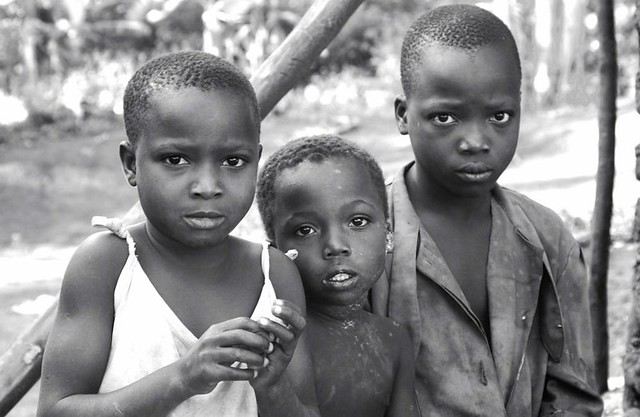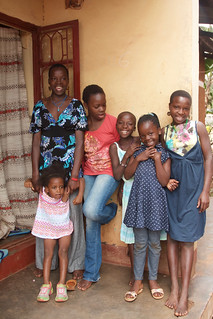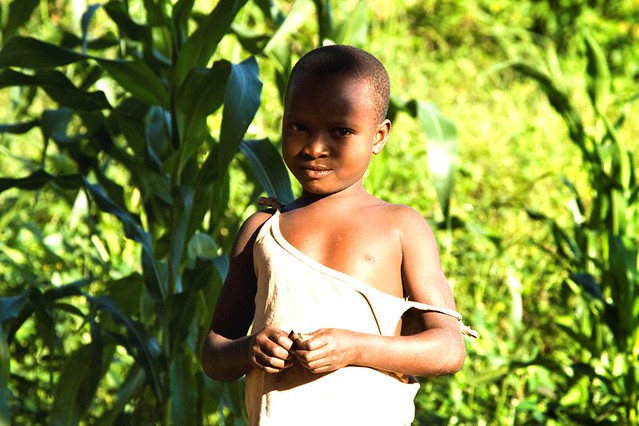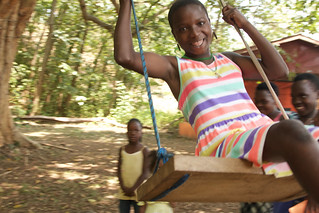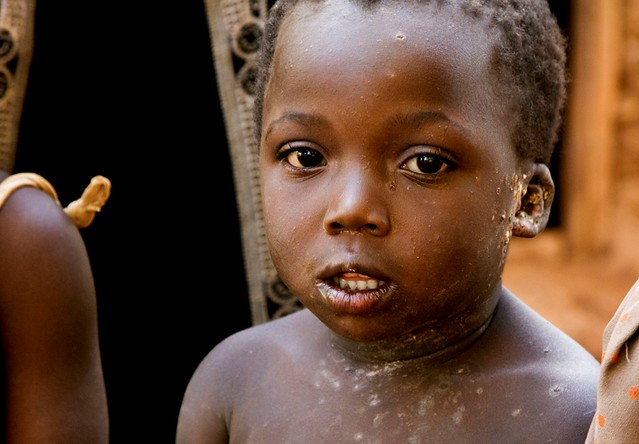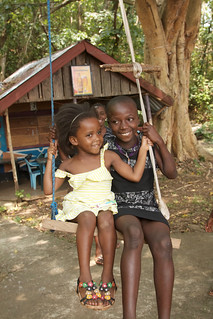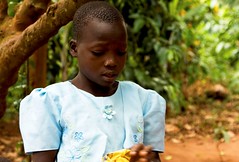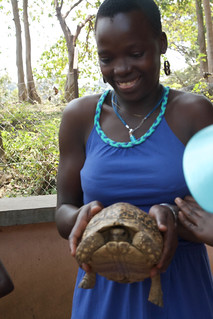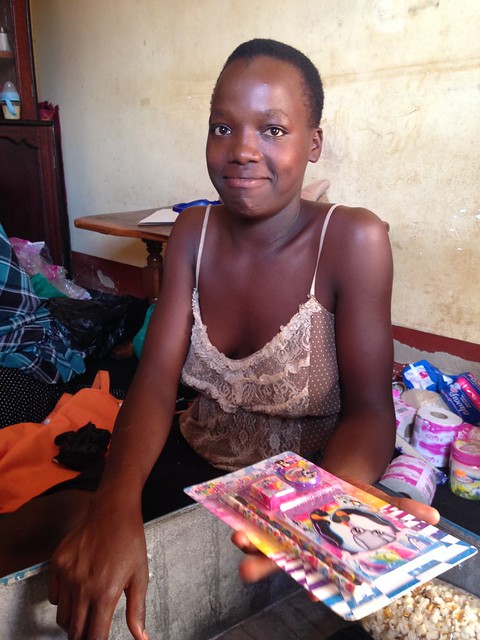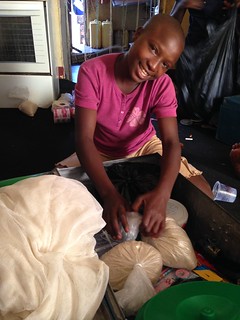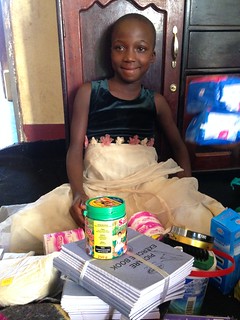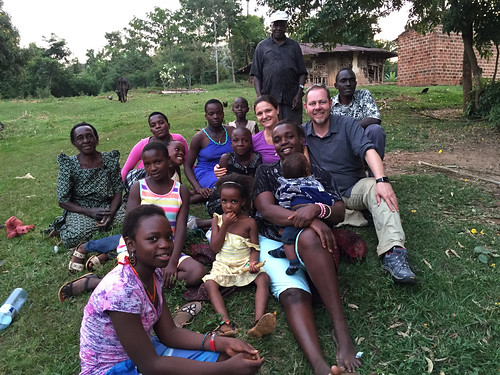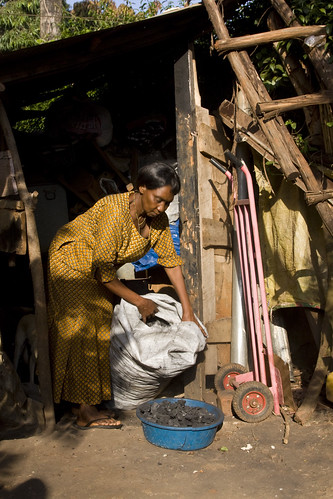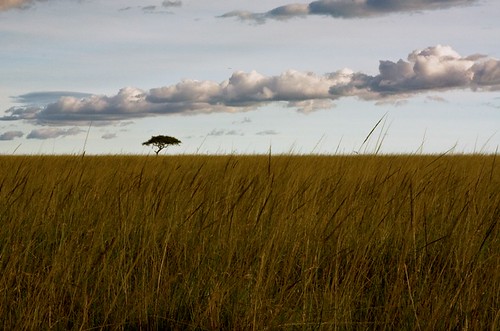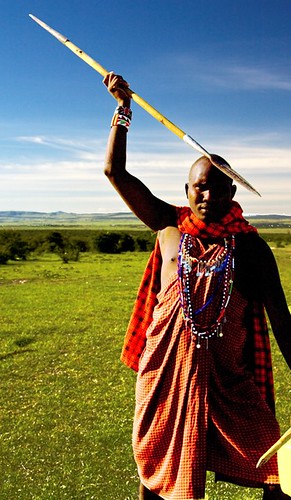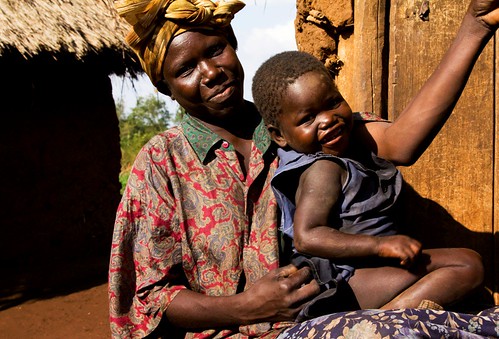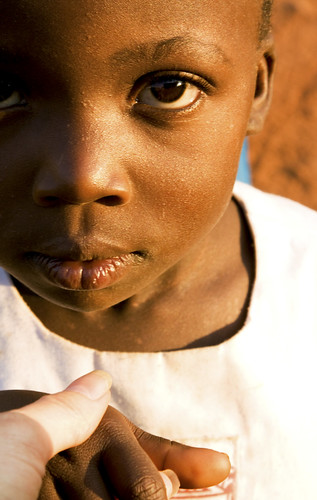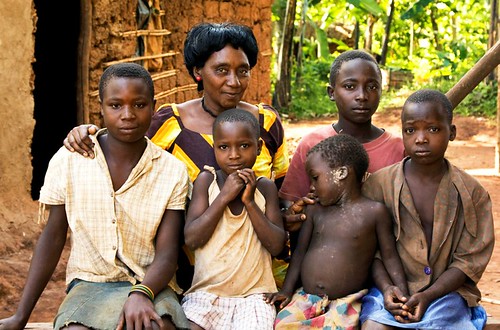

 |
One thing Ester and I wanted to do while I was there was buy the orphans supplies for their upcoming semester in boarding school. As part of attending boarding school, the children must come with everything they need for the semester. This includes paper, pens, and other schools supplies. They also need to have their daily necessities, such as toilet paper, mosquito nets, and bedding. Ester has to buy these supplies for each of the orphans three times a year before each semester.
Ester and I went to several stores to get everything the orphans needed. In fact, we got so many supplies that we loaded up two boda bodas (motorcycles) after just one stop at a local store. The young men driving the bodas were a little amused seeing an American with bags of school supplies in the middle of Uganda, speaking to them in Luganda. (Yes! I actually remember the language!)
Once we got home, Ester handed out the supplies to each of the girls. Beaming, the girls filled up their metal back-to-school trunks, excited about their last semester in this grade. They are very grateful to be returning to school. They know that their schooling, school supplies, rent, and everything else they own is entirely bought with donations I collect from friends in America.
Beatrice, the eldest girl, is studying hard to one day be a teacher. Beatrice is a workhorse, cleaning and cooking for her younger siblings - always with a smile on her face - and being an all-around enormous help to Ester, who now has three of her own children. Sylvia, the middle sister, hopes to eventually follow in her sister's footsteps and become a teacher when she grows up. Just as I remembered her to be, Sylvia is the tenderhearted one in the family. She is a little shy, but very sweet and nurturing to the younger kids in the neighborhood. Rachel, the "baby" of the family, is now nine years old and wants to be a nurse eventually. Although the youngest of the three girls, she is - as ever - the most animated and fearless.
Richard, the girls' only brother, is turning nineteen soon. He decided a few weeks before my arrival that he was ready to end his studies, and has accepted a job in another part of the country. Unfortunately I did not see him while I was there, but I understand that he is enjoying working for a mechanic and that his leg is still strong and healthy.
 |
During our visit, we also took the orphans, Ester, and her children on a couple of local sight-seeing trips. The kids got to see the source of the River Nile at Lake Victoria. We hired a private car to travel the short distance from their town of Lugazi to Jinja, Once we were at the river, we got into a small boat to take us the quick trip from the shore. This alone was a big deal: getting in a car, and then getting into a boat. The girls were a little nervous about the boat at first, but quickly got used to gliding over the water. The guide explained the local birds and plants as we cruised toward the nexus of the lake's end and the river's beginning. When the guide pointed to the gurgling water, saying that it was an underwater spring and considered the source of the great river, Beatrice broke out in a massive smile. In African culture there is a great deal of allegiance to where you are from, and she was clearly very proud to see something so powerful and important near her home.
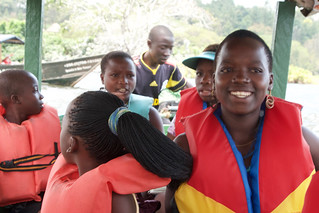
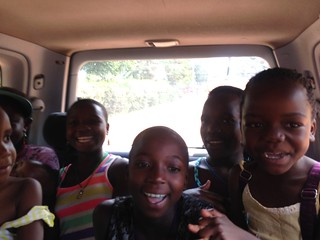
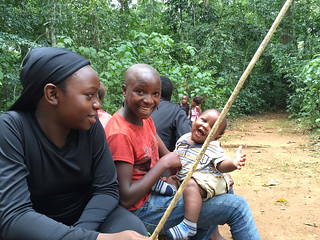
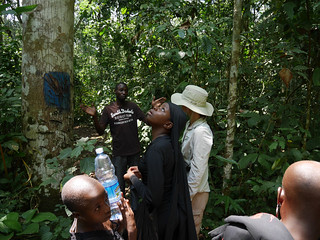
From the bottom of my heart, thank you again for your support. It has allowed these children to live joyful lives, and they look forward to promising futures.
